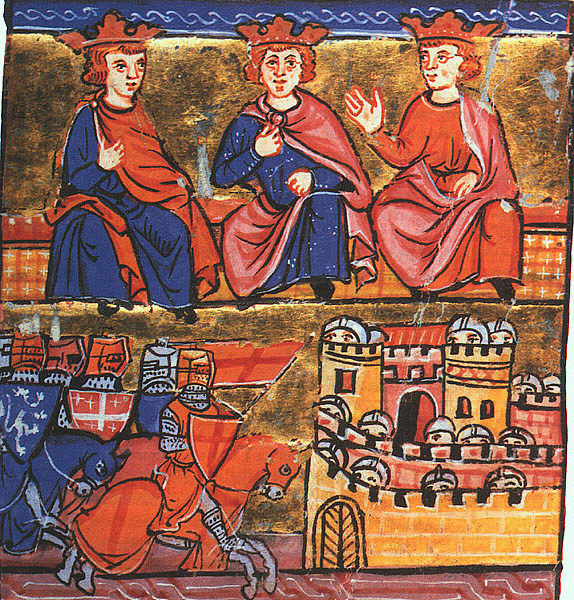Coming soon to Medieval Warfare magazine!
We want to give you a little preview of what you can find in upcoming issues of Medieval Warfare. Our aim is to offer readers a broad range of articles - so one can find pieces on battles, leaders, soldiers, ideas about warfare, and many other topics. Here are five articles that will appear within the next few issues of the magazine, along with a brief excerpt:
The Battle of Stoke Field, by Alexander R. Brondarbit
With their king anointed and publicly acclaimed, the Yorkist conspirators were ready to set forth to conquer England. They landed in the north-west at Foulney Island on 4 June off the coast of Lancashire (now Cumbria). From there they proceeded to the mainland, receiving a welcome from Sir Thomas Broughton, one of Richard III’s retainers who had survived Bosworth. From their the rebel host marched south-east through Yorkshire where they recruited additional support from former retainers and well-wishers of Richard III. Yet despite these gains any dreams of a widespread regional cry for Henry’s overthrow were bound to be disappointed. The rapid pace of the rebels’ march in order to engage the king before he could bring his full resources to bear cut both ways for it prevented the full mobilization of the region to their cause.
Vegetius and His Influence on Medieval Military Logistics, by Ilana Krug
One of the most important elements of a successful military operation, whether a singular endeavor such as a pitched battle or siege, or an entire campaign, is the logistical arrangements behind the operation. Without paying attention to the "nuts-and-bolts" of supply, communication and muster, military tactics on the ground cannot succeed unless by happy accident. It is the most basic requirement of an army, a food supply, that Vegetius most vociferously cautioned the emperor and his generals to heed.
Queen Sybil of Jerusalem as a Military Leader, by Helen J. Nicholson
Queen Sybil (or Sebille, Sibyl or Sibylla) of Jerusalem, queen in her own right, is not known to scholars as a great military leader. She is more famous for her marriage to a man who was thoroughly hated by some of her most powerful and influential nobles and who lost her kingdom and his freedom to the Muslim ruler Saladin in 1187.
Disaster on the Second Crusade: King Louis VII fails to lead, by Laurence W. Marvin
During the preaching of the Second Crusade, persuading Europe’s monarchs to participate was deemed essential to instill and maintain effective command and control. As a devout Christian Louis saw it as his duty to crusade, and as king he would lead the French contingent. Only 28, he had minimal experience commanding troops on campaign. As others have noted, Louis began the crusade as an unenthusiastic commander who acted more like a pilgrim on his way to the Holy Land than a commander of a sizeable army.
The Myth of William Wallace’s Longsword, by Laura Harrison
So where did the myth of the sword originate? Many point to the fifteenth-century minstrel Blind Hary’s poem Wallace, one of the best sources available for the life of Wallace, though it was written more than a century following his death. The text makes several references to Wallace’s sword, including describing ‘his good sword, that heavy was, and long.’
If you enjoyed this taste of what's upcoming, we would love for you to take a moment to subscribe or renew your subscription to our magazine!

